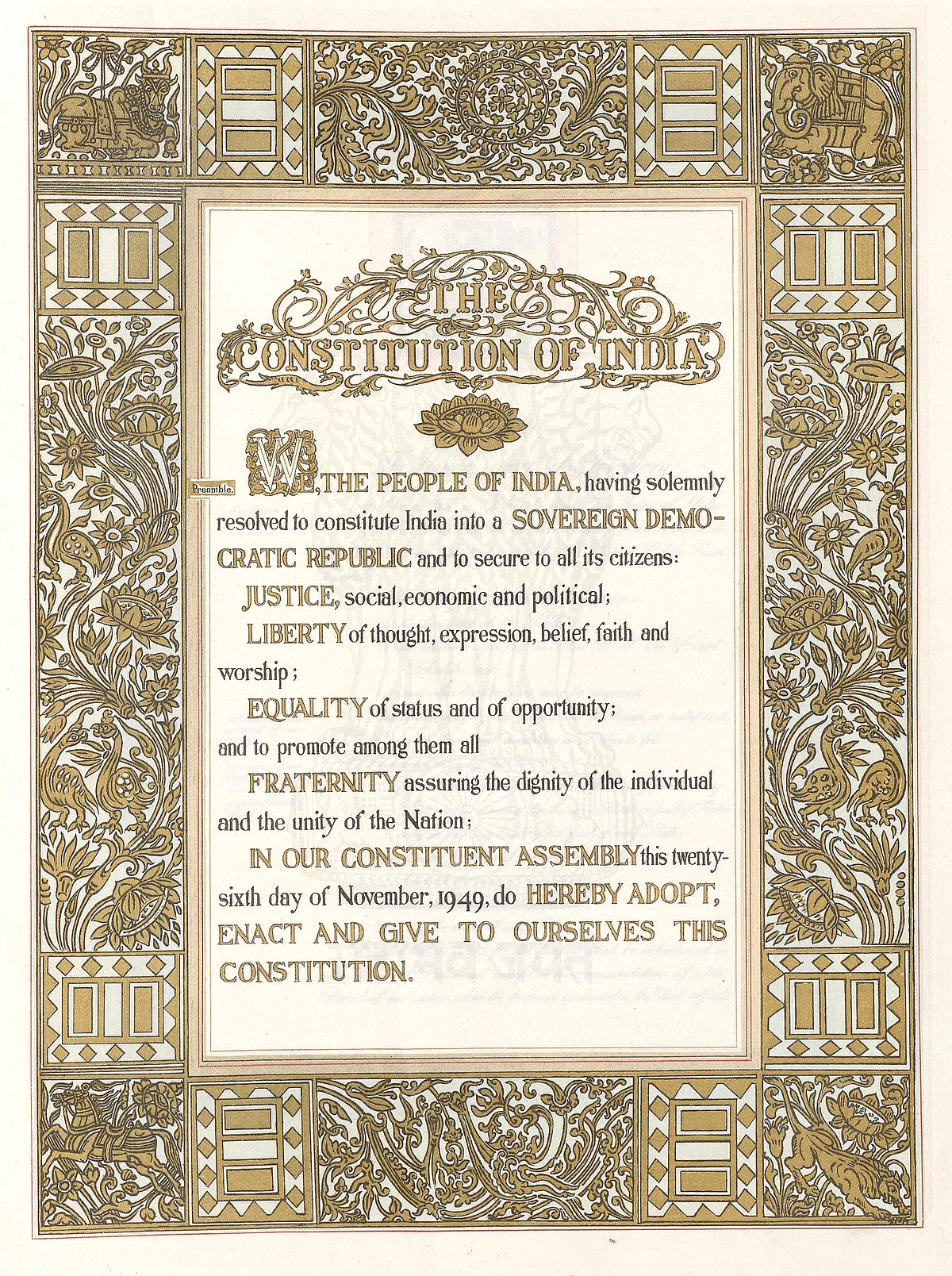Saving our democracy from mob rule
Overcentralising power can only strengthen autocracy. Perhaps it’s time to refresh Gandhi’s idea of ‘village republics’

India just celebrated its 75th Republic Day. But what were the dreams of those who envisioned our republic?
They were drafting the Constitution at a time when the world was engulfed in horrific violence, wars and hatred. It was in such a turbulent era that the Constituent Assembly sat down to chart out the blueprint for a new nation-state.
Every single page of the Constitution asks one fundamental question — who will India belong to? Will it be ruled by the majority alone? Will it serve the interests of the dominant caste, class, region, gender or social group? Will India settle for ‘the greatest happiness of the greatest number’ or will it follow the words of that wandering fakir — who insisted that the last person in the last row must feel that this country belongs to them too, that they have a stake in its making?
If we are to build such an India, what kind of Constitution must we have? We are a sovereign nation-state. We bow to no ruler. Not only is the invasion of our geographical boundaries by an authoritarian power unacceptable but so is the dominance of any one community. A handful of capitalists cannot be allowed to establish economic hegemony.
Cultural extremism cannot be allowed to impose its dogmas. Gender-based superiority must be resisted. The dominance of privileged castes over the lives of the marginalised cannot be tolerated. Dr Ambedkar’s final remarks in the Constituent Assembly serve as a guiding light even today.
In medieval Europe, capitalism began to challenge feudal dominance, allowing ordinary people to invest capital and express their entrepreneurial spirit. Over time, however, unchecked free markets pushed marginalised groups further into destitution and helplessness — giving rise to communist thought as a counterforce. Recognising the dangers of capitalist monopoly, India formally adopted ‘socialism’ in its constitutional framework.

The same historical backdrop shaped the idea of ‘secularism’. In medieval Europe, when the papal hierarchy began challenging political power, the state was delinked from religious authority. Capital, state power and the Church kept each other in check. Finally, the monarchy itself was challenged — beginning with the Magna Carta, which paved the way for democracy, replacing centralised hereditary rule. In post-Independence India, a strong democracy was built by sidelining native princely rulers and landlords. It is against this historical backdrop that Ambedkar’s words must be understood.
He argued that democracy cannot survive on the principle of ‘one person, one vote’ alone. Without economic and social equality, it is nothing but a façade. Yes, in a procedural democracy, everyone gets one vote. But if a handful of capitalists control the tools of mass communication that shape public opinion, they don’t even need to cast their own votes. They can still determine the electoral outcome by manufacturing a narrative that serves their self-interest. At its core, democracy is built on the people — their collective consciousness and natural wisdom. But if the people are rendered comatose, they are reduced to a mindless mob.
The entire strength of the freedom movement lay in awakening people’s consciousness — ensuring they did not descend into a mob mentality. A mob-driven resistance achieves nothing but revenge and retaliation. The moment a hint of such anarchy emerged in the form of the Chauri Chaura incident, Gandhi did not hesitate to halt the massive Non-cooperation Movement. Because the goal was not mob rule; it was democracy — governed by natural wisdom.
Yet today, democratic nations around the world are busy seducing the mob. This is what they call ‘winnability’. To transform people into a directionless herd, grand spectacles are orchestrated. Every event is turned into sensational entertainment. Every media platform plays into this strategy.
Also Read: On Republic Day, the Independence question
The capitalist oligarchy, in cahoots with political power, uses religious hysteria to turn communities into mobs. Regardless of which party wins an election, the real victor is mob rule. Some policies may change, but the race to appease the mob spares no one.
There is no need to abolish elections altogether. But anything that even slightly threatens to awaken public consciousness is carefully avoided. Why take the risk? Every institution is deployed to maintain the illusion of democracy. Economic colonialism manipulates the masses and manufactures majorities.
Those who are enthralled by the dream of a religious state must understand that what is really being built is a mob state. A state where people blindly follow orders to bang plates and ring bells without question. A state where being trampled by a mob is seen as a divine blessing. Where a Dalit being beaten or tortured is accepted as their karma — atoning for their past sins so they may have a better next life. Where a woman enduring marital abuse is glorified as upholding cultural values. When a society’s natural wisdom is extinguished, a microscopic autocracy hijacks the system.
Overcentralising power can only strengthen this autocracy. And so it was that, in Hind Swaraj, Gandhi envisioned village republics — small, decentralised democratic units that would shape their own aspirations. The greatest innovation to revitalise our democracy might be to refresh that idea; otherwise, the nation-state will collapse into a mob-state. What will this new version of the nation-state look like? A true nation must mean its people — their collective consciousness and their harmonious coexistence with the environment. Today, the nation-state is under threat from information technology, open markets and social media networks like Facebook.
In such times, public consciousness is the only antidote, without which everything is reduced to mob-driven hysteria, cheap entertainment—an unending soap opera where the same dead characters keep coming back to life. Only this natural wisdom can make us democratic once again.
Follow us on: Facebook, Twitter, Google News, Instagram
Join our official telegram channel (@nationalherald) and stay updated with the latest headlines
